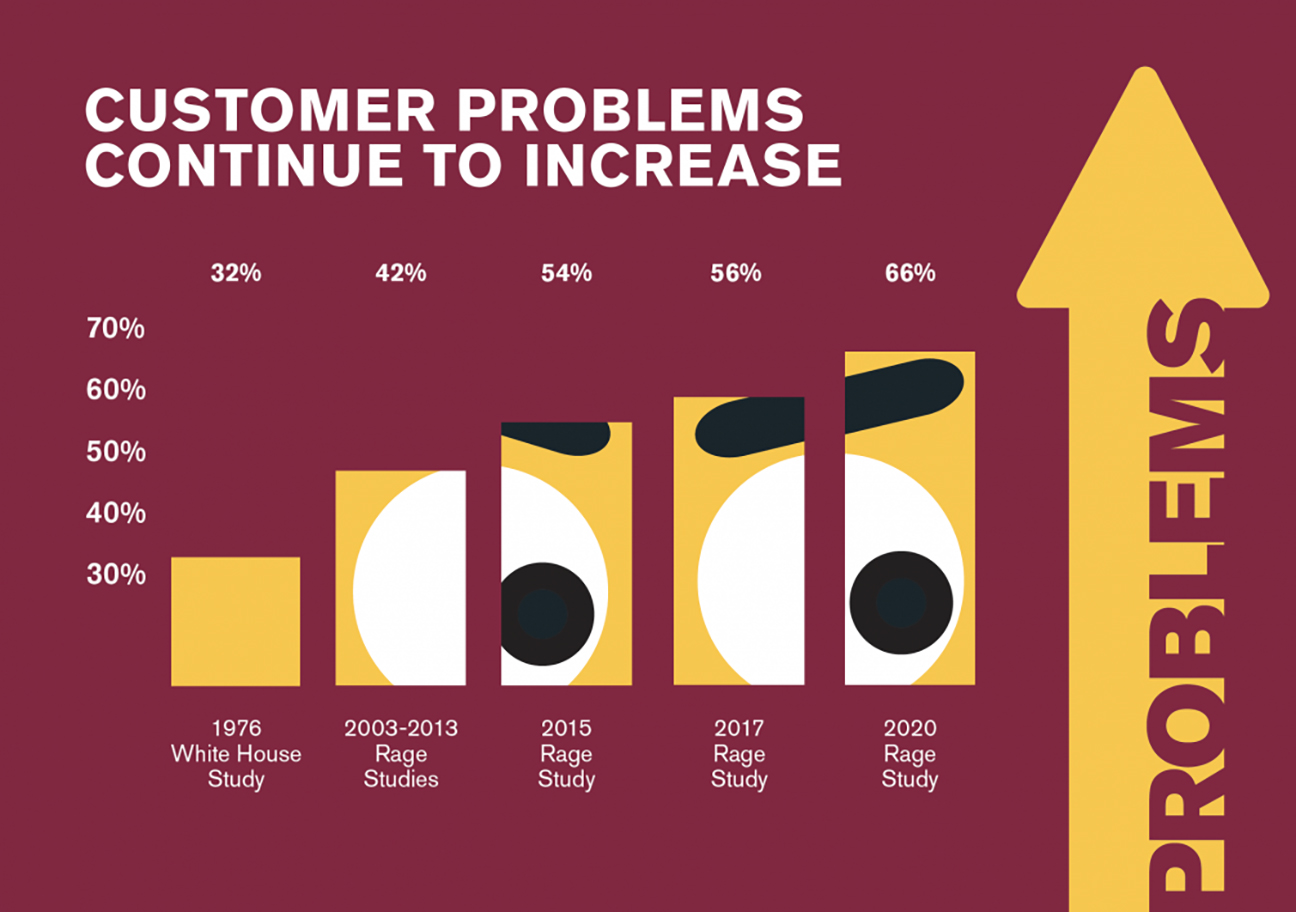In an age where technology and artificial intelligence have revolutionized the way companies interact with their customers, a surprising trend is emerging – AI’s shortcomings in customer service. As customer problems reach record highs, a new study suggests that consumers are becoming increasingly dissatisfied with the assistance provided by automated systems, leading to a surge in individuals seeking ‘revenge’ on companies.
According to the latest edition of a long-running survey, a staggering 74% of the 1,000 consumers surveyed reported experiencing product or service problems in the past year. This represents a significant increase from 66% in 2020 and 56% in 2017, indicating a growing trend of dissatisfaction. In a stark contrast, only 32% of respondents reported problems in 1976, when a similar survey was first conducted.
Notably, the study also revealed a shift in customer behavior, with the percentage of consumers seeking revenge against companies tripling from 3% in 2020 to 9%. This marked a reversal of a declining trend in revenge-seeking behavior observed between 2003 and 2017 when an average of 17% of customers sought revenge against companies.
Scott Broetzmann, President and CEO of Customer Care Measurement & Consulting, which conducts the National Customer Rage Survey in collaboration with the W.P. Carey School of Business at Arizona State University, explained, “It’s the idea that if you, as a company, don’t seem to care, then I’m going to take to the streets.”
One significant change in customer behavior is the increased use of social media as a platform to air grievances. The research found that 32% of complainants posted about their most serious problems on social media, more than double the proportion in the 2020 study. This trend reflects a democratization of complaining, as more people turn to online platforms to voice their dissatisfaction.
However, the dissatisfaction with customer service is not isolated. Forrester reported a decline in customer experience quality offered by consumer-facing brands and government agencies through April 2022. Similarly, the American Customer Satisfaction Index indicated a drop from 77 in 2018 to 73.1 in 2022, the largest decline in its 28-year history. This decline is observed in industries such as fast food, hotels, and gas stations.

Customer dissatisfaction is not only detrimental to a company’s reputation but also impacts its financial health. Companies are not only losing future business but also incurring additional costs to manage irate customers. Angry customers make numerous contacts with businesses, and each interaction represents an added cost for the company.
AI and Automation May Be Adding to the Problem. To cut costs and address staffing shortages, many companies have turned to automation for standard customer service. This often involves directing customers to AI-driven phone lines and web chats to handle basic inquiries. However, this strategy can exacerbate customer anger, as customers express frustration with long automated messages and difficulty in reaching human representatives.
The study indicates that 25% of respondents expected an explanation for their problems, 24% wanted an apology, and 23% sought assurance that the issue would not recur. Unfortunately, only 9% received explanations, 18% got apologies, and 9% received assurances, leaving many customers feeling unheard and unsupported.
AI’s limitations in delivering the empathy and understanding that customers desire may be contributing to this growing dissatisfaction. As Scott Broetzmann highlighted, “A robot cannot be kind and compassionate.”






